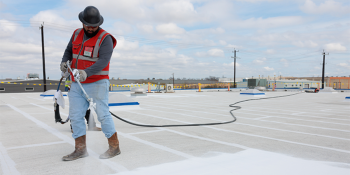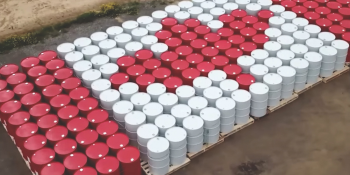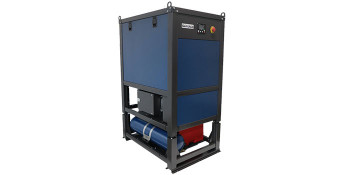Q&A Forums
Heard a new one yesterday... Post New Topic | Post Reply
| Author | Comments |
|---|---|
|
Gerry Wagoner
Posted: Nov 21, 2008 05:14 AM
|
Heard a new one yesterday...
Morton Buildings states in their warranty that adding SPF to the inside of their pole barns voids their warranty. It's the equivalent of Ford selling you a truck and saying that you cannot haul dirt, gravel, leaves or air compressors in the bed. Cleary Buildings and Wick and others recommend SPF as a viable way to insulate their buildings. I am confident that Morton will be obliged to amend this warranty exclusion eventually, based as it is upon misinformation. regards, oG |
|
mason
Posted: Nov 21, 2008 07:46 AM
|
Not only Morton but also Butler Buildings void the warranty if you add anything to the metal including but not limited to paint & cellulose insulation. When I was with the trade association, I had correspondence with Butler about their position. They say that their finish can be compromised by other materials in direct contact with it (causing permature deterioration, rusting etc.) So, the only insulation they accept is fiberglass. In order to change their position you would have to furnish them with significant data demonstrating that SPF would not cause the metal to deteriorate. This type of testing would take years and hundreds of thousands of dollars to accomplish. In the meanwhile, Butler and Morton's clients must make the decision if the possible void of warranty is worth the benefits that SPF could provide in energy savings, enhanced wind uplift resistance, long term durability and moisture control. |
|
quentin
Posted: Nov 21, 2008 08:15 AM
|
I know right now I am fighting the code officials since out state codes do not even address sealed attic systems. Working on contacting the state level officials to get this all fixed and clarification for the local level officials since they are killing me on getting work. I have several jobs stuck on hold and about ready to lose them since they can't make up their minds on what is and isn't allowable. Hey Olger, if I can get a letter clarifying things a bit, you want me to send you a copy too? |
|
mason
Posted: Nov 22, 2008 09:41 AM
|
Quentin, Be sure to collect all of the articles about unvented attics on my Honeywell blog and website, masonknowles.com. Check out Buildingscience.com for good articles as well. |
|
quentin
Posted: Nov 25, 2008 08:07 PM
|
Thanks Mason! I have no idea why they stopped one short in the codes and the local officials don't know either but they believe in the products and sealed attics. Also have you gotten wind of a code change elliminating the thermal/ignition barrier requirements for attics and cralwspaces in the pipeline? I got wind that they are going to make that change which would be a BIG help to the industry. |
|
mason
Posted: Nov 26, 2008 11:37 AM
|
It is not likely that they would discontinue the use of thermal or ignition barriers in attics or crawl spaces. Foam plastic remains a serious fire rise in attics if not covered with an approved (or tested) ignition barrier. However, a foam plastics industry task group is conducting research to determine the best test methods and procedures to evaluate ignition barriers. We should have some industry recommendations within the next 6 to 12 months. |
|
mason
Posted: Nov 26, 2008 11:40 AM
|
I meant fire risk not rise in the last post. |
|
quentin
Posted: Nov 26, 2008 05:48 PM
|
Thanks Mason. It was to strictly apply to those spaces when they did not have oprn flame mechanicals like a gas furnace from the bit I heard on it. They should come out with a good foam that is fire resistant enough to pass. I know the chemistry would be tricky but even a 15% drop in yield would be worth it since the cost benifits would outweigh that. |
|
mason
Posted: Nov 27, 2008 03:34 PM
|
Unfortunately it is a little more complicated than that. You would have to add fire resistant fillers to the foam which in turn would clog up your pump and gun screens. Believe me folks have worked on this issue for over 40 years with no real solution in sight. |
|
Jim Coler
Posted: Jan 03, 2009 11:49 AM
|
This is a HUGE issue in the industry. Yes, spray foam will burn like almost anything with the right temps and conditions. But, ALL foams are lumped together in the codes and the codes contradict themselves all over the place. There seems to be a complete misunderstanding in the types of plastcis out there and that they may perform differently in fire conditions. To be brief; there is thermoset and thermoplastic foams and these are not distinguished in the codes. Tehre are also different classifications based on testing, like Class I, II, and III foams which are somewhat distiguished in the codes, but they are typically trumped by the statements in the codes that, "All plasticized foams need to be covered with a 15 minute thermal barrier." There is a lot of history around this and misunderstandings too. Supposedly the task force is working on this objectively, but I'd heard that they are just trying to interpret the code na dnot change it. The fact is it's so messed up it needs to change and start over with a comprehensive understanding of what we're trying to protect and what materials will perform to the standard set. There are also a number of people on this task force who have biased opinions and vested interests to keep all foams required to be covered, like coating providers, and foam manufacturers who have a lesser flame resistance/fire retardancy. I don't expect the SPFA to be able to come up with the "right"decision unless they are willing to "take on the codes" and get them changed. Just publishing another interpretation is going to be like peeing in the wind - which gets messy for those who have tried it. As you can see this is a Hot topic (pun intended)and needs to be addressed, but is the SPFA willing to take it to the level it needs to and state the facts. Also, as soon as you get the lawyers involved, you can't say anything and I'm hearing that this task force is not willing to make any statements outside of the norm - which is like saying they'll get nowwhere because of the legal liabilitu veto process. |





























